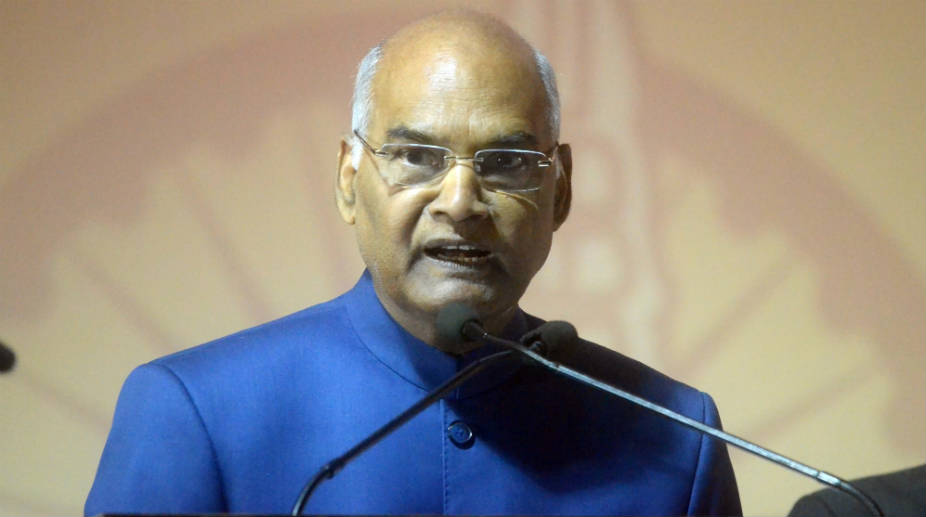President Ram Nath Kovind signed the ordinance to amend the Protection of Children from Sexual Offences (POCSO) Act on Sunday, a day after stringent death penalty under the Act was approved by the Union Cabinet.
With the President’s signature, the Indian Penal Code (IPC), the Evidence Act, the Code of Criminal Procedure (CrPC) and the POCSO Act stand amended.
Advertisement
On Saturday, the Union Cabinet headed by Prime Minister Narendra Modi approved the ordinance that introduced death penalty for rapists of children up to the age of 12.
The Centre also cleared criminal law amendment ordinance, which includes POCSO Act.
While minimum punishment for rape has been raised to 10 years from 7 years in case of a woman, the maximum punishment has been set to life imprisonment.
The minimum punishment for rape of children under the age of 16 has been set to 20 years. Gang-rape of children below the age of 16 invites life imprisonment.
The biggest change is the introduction of death penalty for rapists who commit the heinous crime against children up to 12 years of age.
Further, all rape trials are to be completed within two months and all appeals in rape cases are to be decided within six months.
The amended Act also rejects the provision for anticipatory bail for a person accused of rape or gang rape of children under 16 years of age.
The amendment came after public outcry and anger over rising incidents of crimes against children in the country, especially since the Kathua rape case.
In a letter submitted to Supreme Court (SC) on Friday, the Centre had said that the process to amend the POCSO Act, 2012, has been initiated.
The Centre was responding to a Public Interest Litigation (PIL), which had sought maximum sentence of death penalty to those who are involved in rape and murder of children up to 12 years of age.
Parliament had passed the ‘Protection of Children Against Sexual Offences Bill, 2011’ regarding child sexual abuse on 22 May 2012. The Act was framed to protect children from offences of sexual abuse, sexual harassment and pornography and to provide a child-friendly system for the trial of these offences.
Union minister Maneka Gandhi had earlier asked her department to prepare a proposal for an amendment to the POCSO Act for the rape of a minor below the age of 12 years, saying tough punishment would act as a strong deterrent.
“Tough punishment will act as a strong deterrent for such an offence, Maneka had said, while adding “toughening the law in 2015 for crimes committed by juveniles, including rape, had a desired effect”.
In 2015, Parliament passed a Bill which allows juveniles between 16 and 18 years of age to be tried as adults for serious crimes such as rape or murder.











